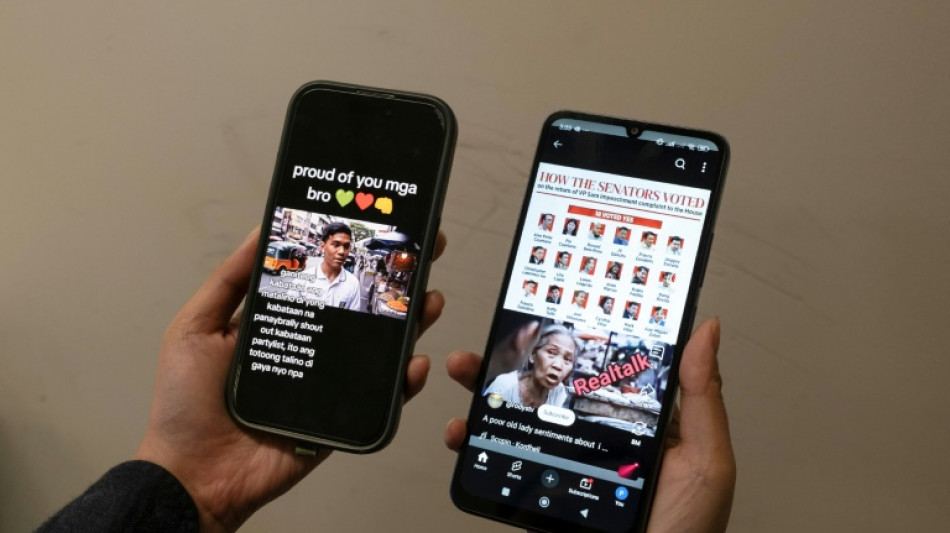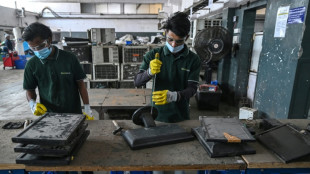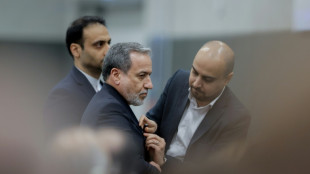
AI fakes duel over Sara Duterte impeachment in Philippines

Days after the Philippine Senate declined to launch the impeachment trial of the country's vice president, two interviews with Filipinos arguing for and against the move went viral.
Neither were real.
The schoolboys and elderly woman making their cases were AI creations, examples of increasingly sophisticated fakes possible with even basic online tools.
"Why single out the VP?", a digitally created boy in a white school uniform asks, arguing that the case was politically motivated.
The House of Representatives impeached Sara Duterte in early February on charges of graft, corruption and an alleged assassination plot against former ally and running mate President Ferdinand Marcos.
A guilty verdict in the Senate would result in her removal from office and a lifetime ban from Philippine politics.
But after convening as an impeachment court on June 10, the senior body immediately sent the case back to the House, questioning its constitutionality.
Duterte ally Senator Ronald dela Rosa shared the video of the schoolboys -- since viewed millions of times -- praising the youths for having a "better understanding of what's happening" than their adult counterparts.
The vice president's younger brother Sebastian, mayor of family stronghold Davao, said the clip proved "liberals" did not have the support of the younger generation.
When the schoolboys were exposed as digital creations, the vice president and her supporters were unfazed.
"There's no problem with sharing an AI video in support of me. As long as it's not being turned into a business," Duterte told reporters.
"Even if it's AI... I agree with the point," said Dela Rosa, the one-time enforcer of ex-president Rodrigo Duterte's drug war.
- Five minutes' work -
The video making the case for impeachment -- also with millions of views -- depicts an elderly woman peddling fish and calling out the Senate for failing to hold a trial.
"You 18 senators, when it's the poor who steal, you want them locked up immediately, no questions asked. But if it's the vice president who stole millions, you protect her fiercely," she says in Tagalog.
Both clips bore a barely discernible watermark for the Google video-generation platform Veo.
AFP fact-checkers also identified visual inconsistencies, such as overly smooth hair and teeth and storefronts with garbled signage.
The man who created the fish peddler video, Bernard Senocip, 34, told AFP it took about five minutes to produce the eight-second clip.
Reached via his Facebook page, Senocip defended his work in a video call, saying AI characters allowed people to express their opinions while avoiding the "harsh criticism" frequent on social media.
"As long as you know your limitations and you're not misleading your viewers, I think it's fine," he said, noting that -- unlike the Facebook version -- he had placed a "created by AI" tag on the video's TikTok upload.
While AFP has previously reported on websites using hot-button Philippine issues to generate cash, Senocip said his work was simply a way of expressing his political opinions.
The schoolboy video's creator, the anonymous administrator of popular Facebook page Ay Grabe, declined to be interviewed but said his AI creations' opinions had been taken from real-life students.
AFP, along with other media outlets, is paid by some platforms including Meta, Google and TikTok for work tackling disinformation.
- 'Grey area' -
Using AI to push viewpoints via seemingly ordinary people can make beliefs seem "more popular than they actually are", said Jose Mari Lanuza of Sigla Research Center, a non-profit organisation that studies disinformation.
"In the case of the impeachment, this content fosters distrust not only towards particular lawmakers but towards the impeachment process."
While some AI firms have developed measures to protect public figures, Jose Miguelito Enriquez, an associate research fellow at Nanyang Technological University, said the recent Philippine videos were a different animal.
"Some AI companies like OpenAI previously committed to prevent users from generating deepfakes of 'real people', including political candidates," he said.
"But... these man-on-the-street interviews represent a grey area because technically they are not using the likeness of an actual living person."
Crafting realistic "humans" was also getting easier, said Dominic Ligot, founder of Data and AI Ethics PH.
"Veo is only the latest in a string of rapidly evolving tools for AI media generation," he said, adding the newest version produced "smoother, more realistic motion and depth compared to earlier AI video models".
Google did not reply when AFP asked if they had developed safeguards to prevent Veo from being used to push misinformation.
For Ligot, guardrails around the swiftly evolving technology are a must, warning AI was increasingly being used to "influence how real people feel, pressure decision-makers and distort democratic discourse".
B.Lee--SG

 London
London

 Manchester
Manchester
 Glasgow
Glasgow
 Dublin
Dublin
 Belfast
Belfast
 Washington
Washington
 Denver
Denver
 Atlanta
Atlanta
 Dallas
Dallas
 Houston Texas
Houston Texas
 New Orleans
New Orleans
 El Paso
El Paso
 Phoenix
Phoenix
 Los Angeles
Los Angeles



